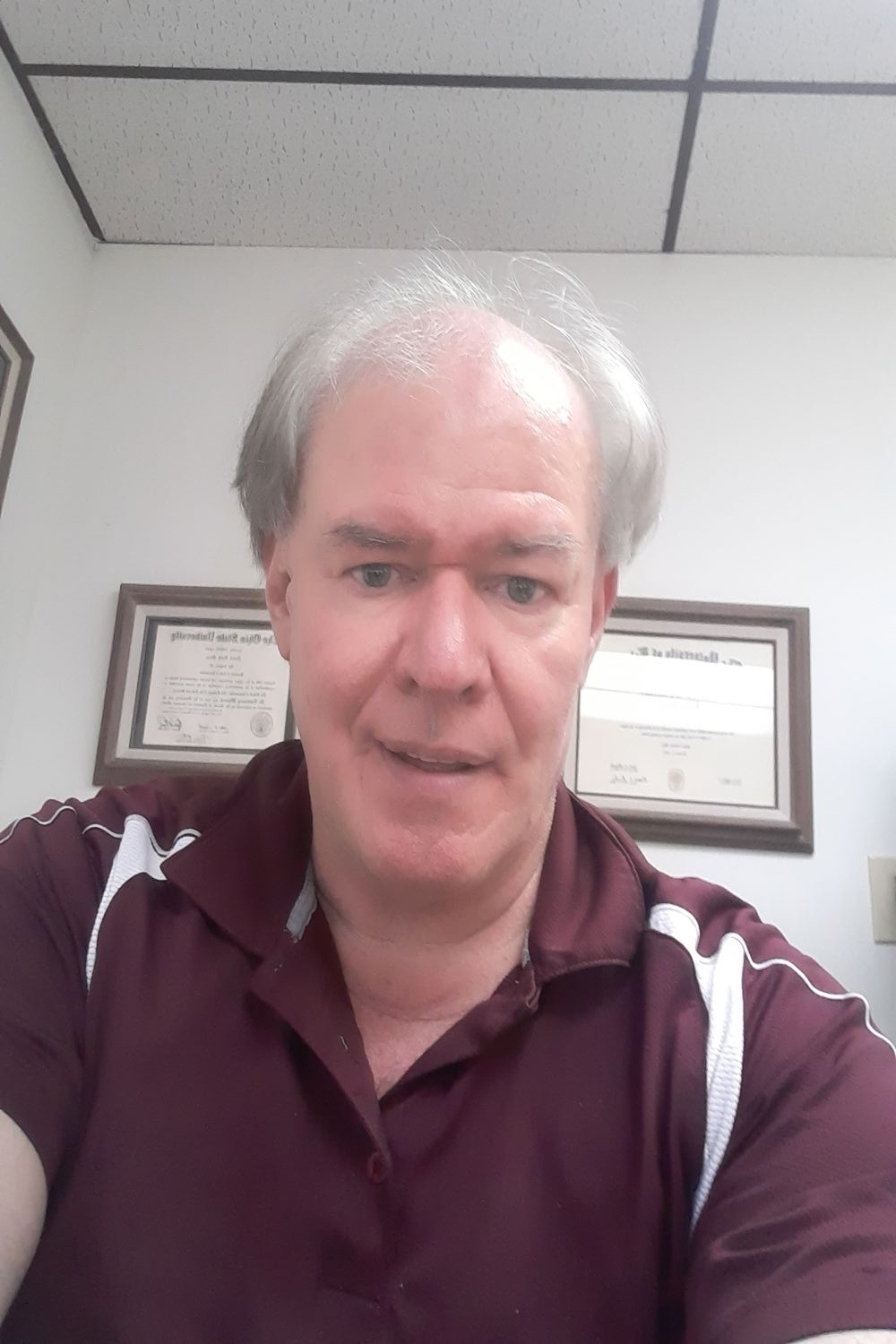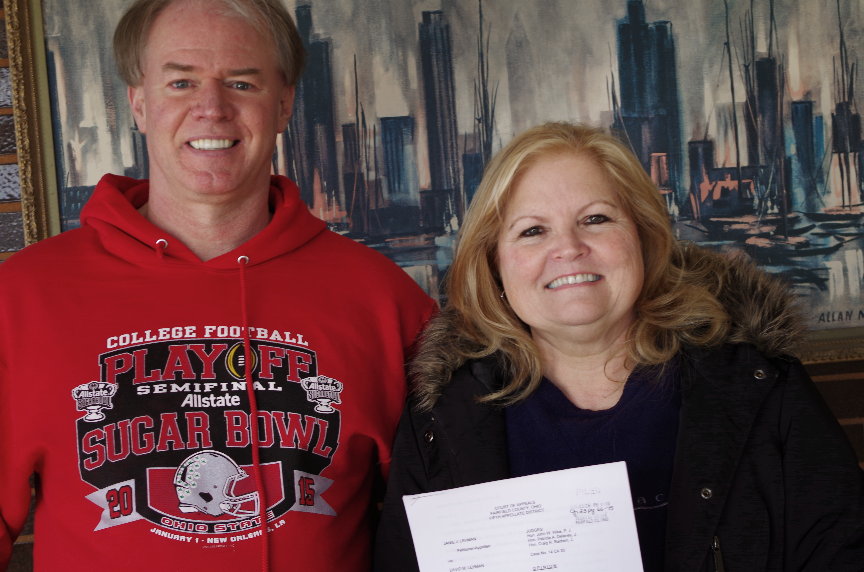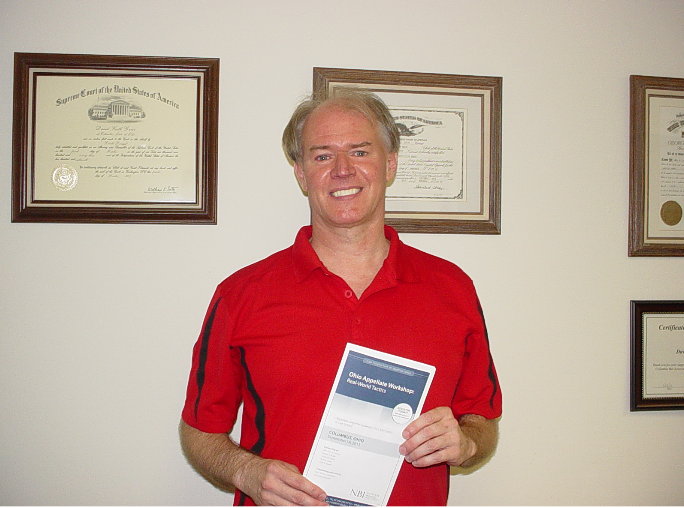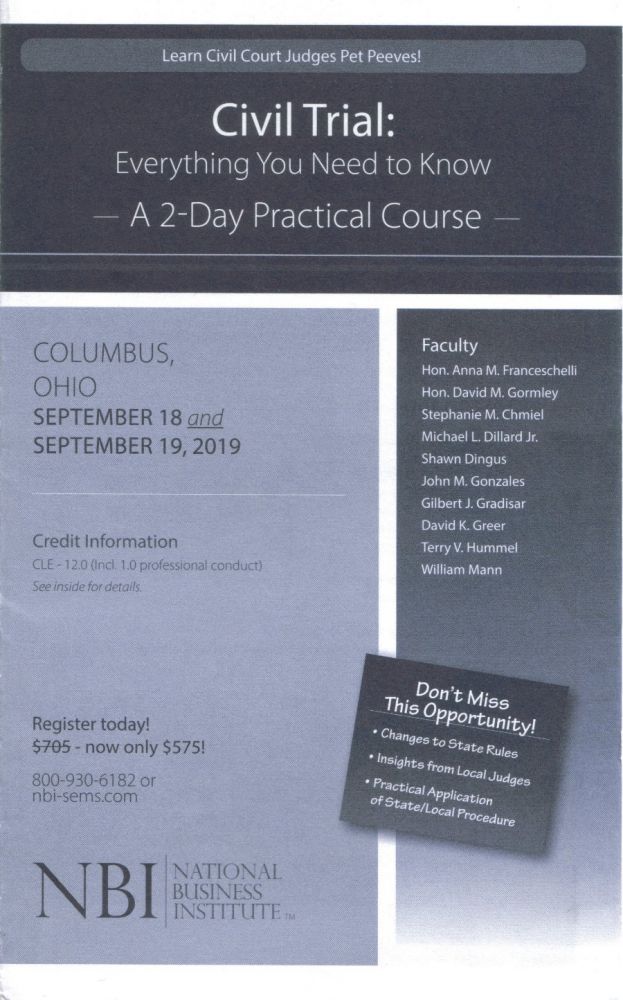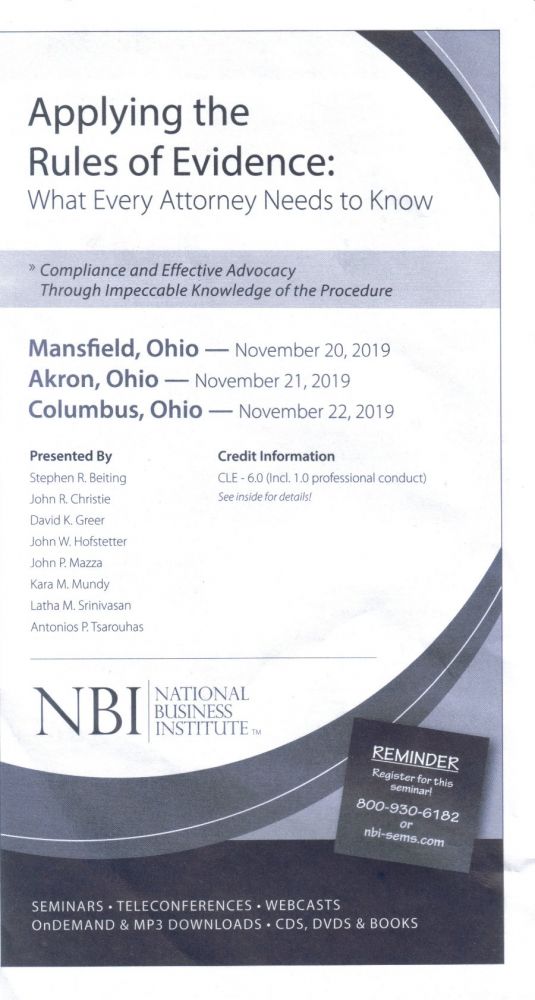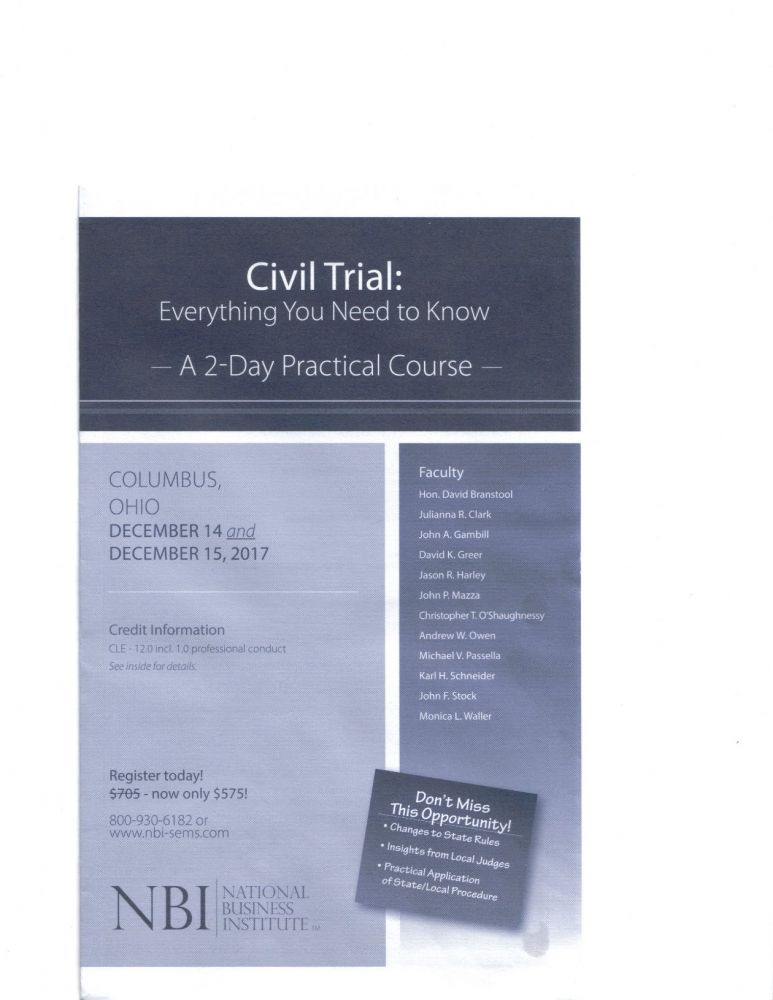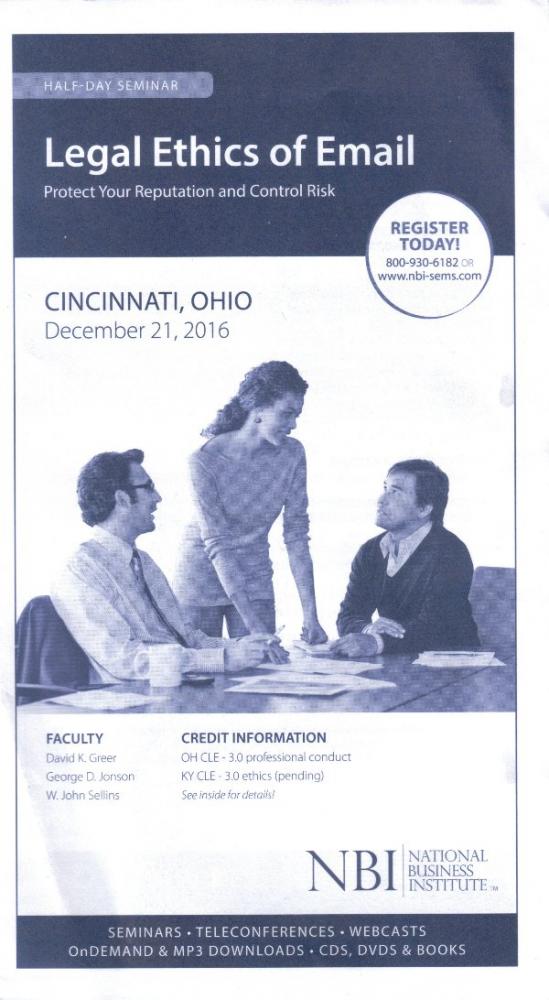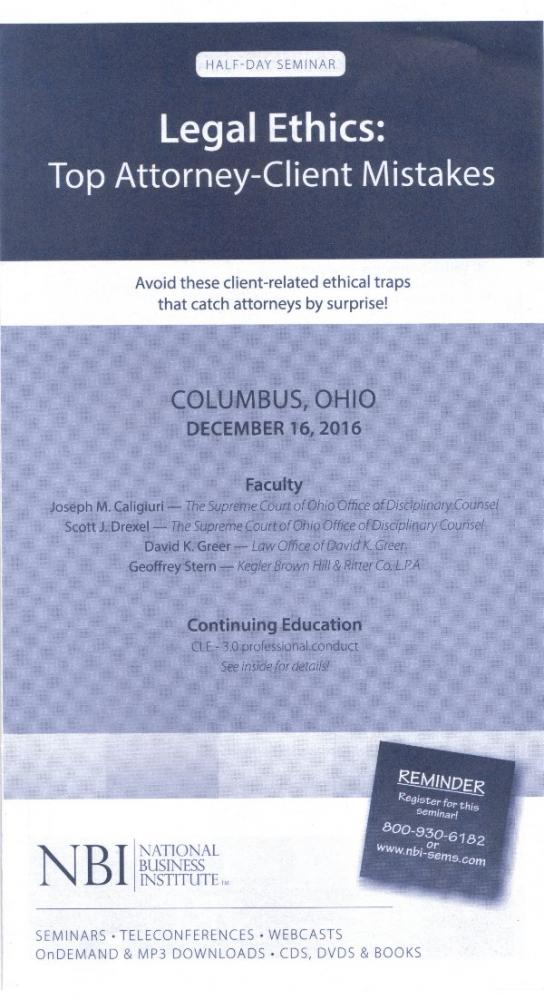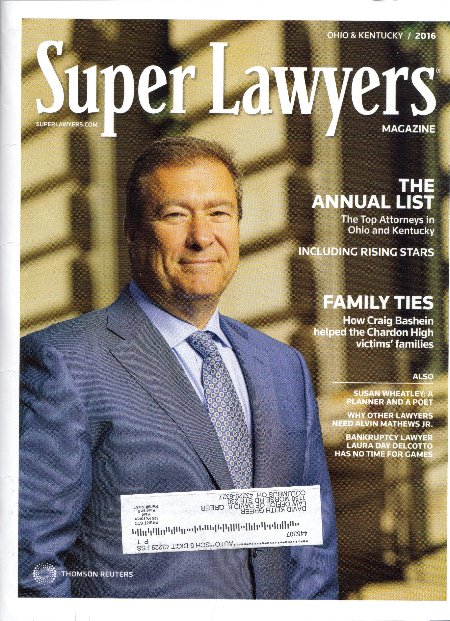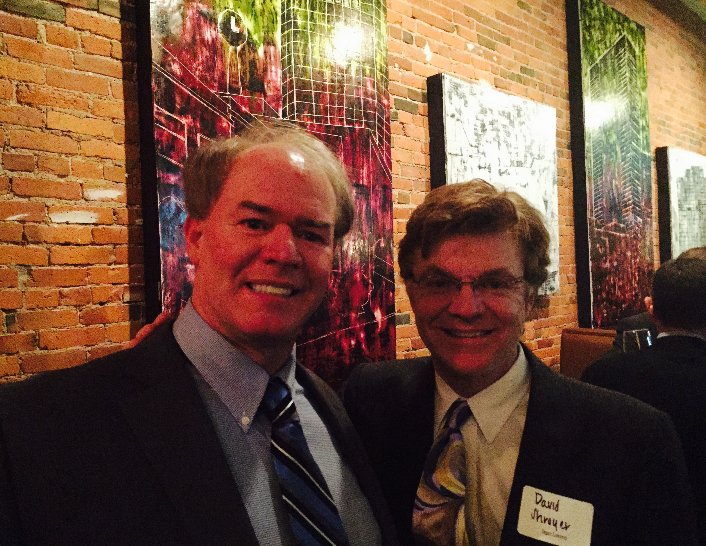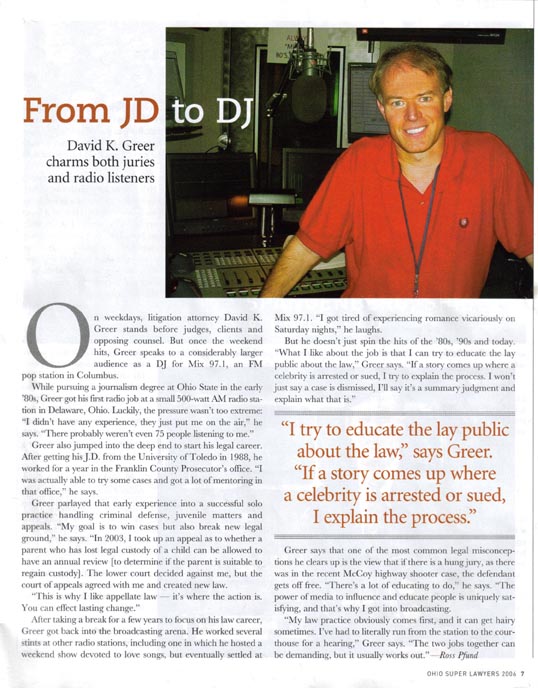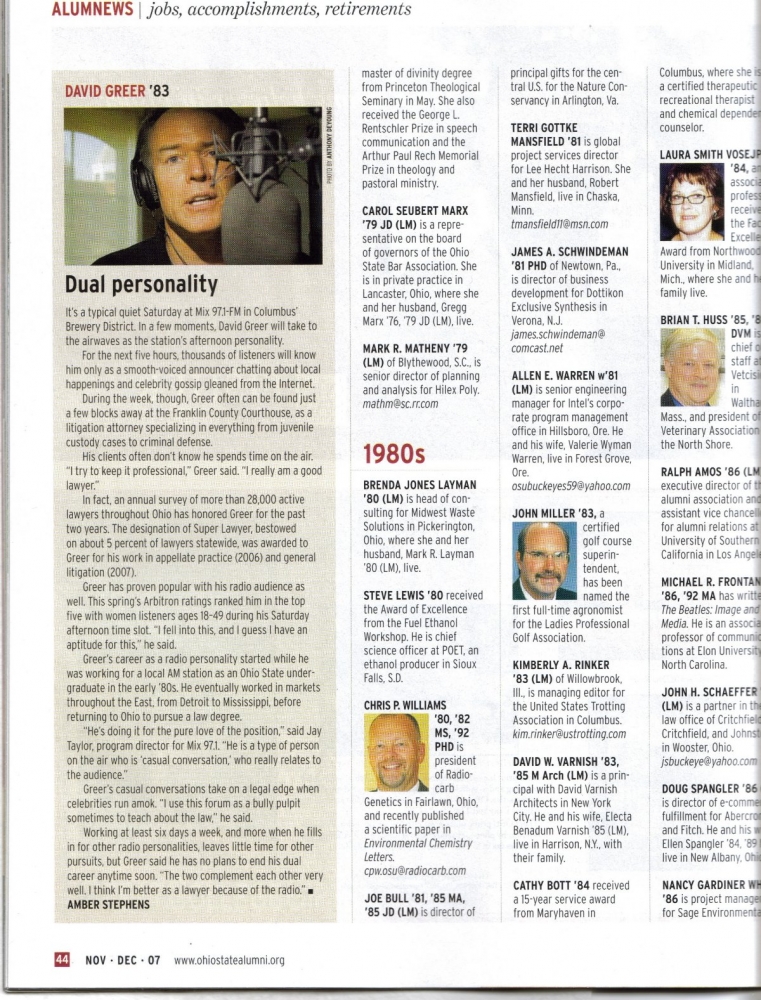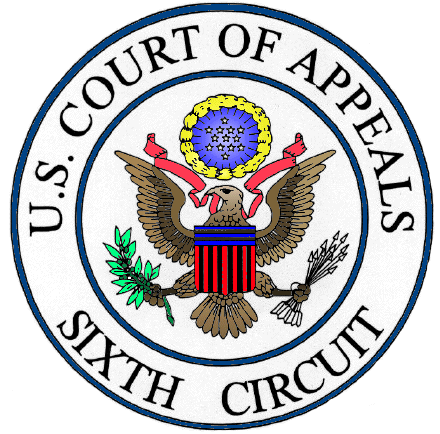|
Delinquency Adjudications
On July 21, 2015, the Tenth District Court of Appeals reversed the decision of the Franklin County Juvenile Court, which had upheld a magistrate's decision
declining to suppress the statements of Attorney David K. Greer's client to a Columbus police detective. The appeals court ruled that the detective used
"intentionally misleading" and "deceptive" tactics to secure the client's confession in a robbery and felonious assault case.
The case stemmed from a July 2013 incident in which the client was arrested along with several other juveniles on suspicion of attacking an individual at
Comfest. At around 4 AM on July 1, 2013, the detective interrogated the client. The client was only 13, and no parent was present. He had also been in
handcuffs four hours, and there was no evidence that the client had been offered food or drink by the police prior to the interrogation. Moreover, the interview
room was cold, the client was yawning and tired, and he had to wait 50 minutes in the interrogation room for the detective to arrive.
The client tried to explain his innocence, but the police detective didn't want to hear it. The detective alluded to the possibility of a 28-year prison sentence,
but implied this result could be avoided if the client confessed to his part in the attack. Since the client was a juvenile with no prior record, the appeals court
stated that the mention of a 28-year prison sentence was "intentionally misleading and constitutes deceptive conduct", in that it was "not a truthful
approximation" of the sentence he could have faced. The detective also employed the deceptive tactic of telling the client that his friends had implicated him,
when there was nothing to indicate this was true.
In addition to the client's statements being involuntary, the appeals court ruled there was no evidence the client understood his Miranda rights, other than
signing a police form to that effect. All the client understood was that, by signing the form, he could speak to the detective, not that he understood the
consequences of waiving his constitutional right to remain silent, the court of appeals concluded.
Attorney Greer feels vindicated. All along he believed the detective's interview tactics were egregiously improper, and his client's statements should be
suppressed. Several colleagues in the juvenile defense bar have congratulated David on this big win. David is pleased that this case is now out there, as an
illustration how not to conduct a juvenile interrogation, and that deceptive tactics will backfire.
The case was ultimately returned for a new trial before a different magistrate, minus the confession. The client, now 15 and weary with the two-year
prosecution, ultimately agreed to admit to a much lesser offense on condition there would be no further sanctions. The original charges of robbery and felonious
assault were dismissed by the state. The juvenile court then closed the matter.
Judge's Order that Ex-Husband Must Reimburse Client 1/2 for Sons' Student Loans Upheld
After her ex-husband battled J.L., Attorney David K. Greer's client, in three appeals, she finally got what she wanted. All J.L. wanted was that her ex-husband
comply with what he had agreed in the dissolution decree between the parties in 1998, to share in the costs of their sons' college education.
After a trial, Judge S. Farrell Jackson of the Fairfield County Domestic Court fashioned a reimbursement plan in his ruling on March 21, 2014. The judge ordered
the ex-husband to reimburse J.L. for one-half of the sons' student loan payments as she makes them. The judge also ordered J.L. to notify the ex-husband
within seven days of her intent to contact the providers of student loans which are currently dormant, in order to set up a monthly payment plan and reactivate
these loans. If the ex-husband declines to participate in these discussions with the dormant loan providers, the judge allowed the client to negotiate a monthly
payment plan on her own, and the ex-husband must pay one-half of whatever the client negotiates. Again, all of this was in accordance with the parties' original
dissolution decree in 1998, which required the ex-husband to share in the cost of the sons' college education.
The ex-husband appealed Judge Jackson's ruling. On January 26, 2015, the Fifth District Court of Appeals upheld the judge's reimbursement order. The appeals
court noted that although the 1998 decree had ordered the ex-husband to share in the costs of the sons' college education, it was vague as to the actual
mechanics of reimbursement. However, the domestic court "has full power to enforce its decree and to order the payment of support arrearages", the appeals
court stated. Accordingly, "we find no error as a matter of law in the trial court's reimbursement plan", which had been rendered in response to Attorney Greer's
motion to modify a 2007 judgment entry, which had originally set forth a reimbursement plan to implement the decree but was now outdated.
The ex-husband did not file a further appeal to the Ohio Supreme Court, so the case is now over. The client is very pleased with the final outcome. J.L.
originally met with David in August 2011, even though his office was in the Cleveland area at that time. The client drove all the way up from the Columbus area
nevertheless, because she needed to file an appeal and was unhappy with her former lawyer. With David's representation, the client won that original appeal in
2012. She has been on the defending side in the two latter appeals filed by the ex-husband. This latest successful appeal outcome for the client finally puts an
end to the case.
The client, J.L., triumphantly displays a copy of the January 26, 2015 decision of the Fifth District Court of Appeals, standing next to Attorney David K. Greer. The appeals court upheld the
Fairfield County Domestic Court's decision that J.L.'s ex-husband must reimburse her 1/2 for payments she makes on the sons' school loans until all the loans are paid off. After over three
years and three appeals, the Fifth District's decision finally ends the litigation. Needless to say, David is a fan of the 2014 National Champion Ohio State Buckeye football team.
Client's Position Vindicated
It took over a year of litigation, but ultimately Brian Flint's position was vindicated.
Brian is the majority shareholder of a race car maintenance shop, Know Fear Motorsports LLC. In 2011, he signed a lease on behalf of his company with a
company on Columbus' west side as a location for Know Fear. Two years later, Know Fear fell behind on its rent, a fact which Brian never denied.
But Brian tried to resolve things with the landlord before litigation or an eviction became necessary. Twice in the late summer of 2013 he tried to meet with the
landlord and discuss a resolution. When Brian tried to meet with the landlord a third time, on September 9, 2013, he discovered that Know Fear had been locked
out, with only a sign posted on the door. The property of the business, and that of Brian's customers and associates, as well as his own property, were locked
inside. To his credit, Brian's initial concern was in retrieving the property of innocent third parties. He tried writing and e-mailing the landlord's attorney, as
instructed, but was met with the overly legalistic response that he must first identify and provide "proof of ownership" of each of the hundreds of
items of property, which was impossible.
That's when Brian turned to attorney David K. Greer for help. By this time, the dispute had escalated, with the landlord having filed suit against Know Fear
Motorsports LLC, and Brian, as guarantor under the lease.
Other than answering the suit, Attorney Greer's first task was to negotiate with the landlord's attorney for his client's retrieval of the property. Within a month,
most of the property was returned. Some items were lost or stolen however, and never recovered. Attorney Greer therefore countersued the landlord for
conversion, the legal name for the civil taking or misappropriation of someone else's property, in addition to punitive damages and attorney fees.
The case was now a huge mess. But early on, in November 2013, to avoid unnecessary litigation, Attorney Greer and Mr. Flint met with the landlord's attorney
and made a settlement offer. It was flatly rejected by the landlord's attorney, who demanded several thousand dollars more to settle the case. The landlord's
settlement figure was based on a number of padded and bogus charges according to Brian, and certain disputed "CAM charges", which Brian refused to pay.
Because Brian's settlement offer was rejected, litigation became necessary. Depositions were taken, and requests for admissions and interrogatories were
served. Each side filed opposing motions for summary judgment. In October 2014, (now former) Judge Dan Hogan of the Franklin County Common Pleas Court
overruled the landlord's motion for summary judgment as to Brian's counterclaim for conversion, punitive damages, and attorney fees. The court thus ordered
that Brian's counterclaim may proceed to trial.
The case eventually came full circle. On January 9, 2015, the parties met face-to-face, and the landlord accepted a settlement for the exact figure Brian had
originally offered in November 2013, albeit less than $200 more. With the settlement, the court case and counterclaim were then dismissed.
Thanks to David's representation, Brian, not surprisingly, feels vindicated. His position all along was that he just wanted to pay his company's rent, and other
legitimate costs associated with Know Fear's tenancy, which the settlement accomplished. If the landlord had just met with him to discuss a resolution of the
rental dispute in August 2013, the lockout, and the litigation, might have been unnecessary.
Brian is happy to say he has since found more suitable space for Know Fear Motorsports LLC, and at a much lower rent. Oh, and if you need your race car
worked on, see Brian.
(Use of Mr. Flint's name and that of his company in this story was by permission.)
Legal Memorandum Leads to Juvenile Client's Acquittal of Robbery Charge
From what we often see on TV and movies about the legal profession, it is a spellbinding closing argument like Gregory Peck's in "To Kill a Mockingbird" that wins
cases. It sometimes does, but much more often, winning a case comes down to tireless legal research and tight legal writing. Such was the case with one of
attorney David K. Greer's clients who was charged with robbery in Franklin County Juvenile Court.
The case was tried before a visiting judge in late August 2014. At the close of the state's case-in-chief, David orally argued that his client should be acquitted
of the robbery charge because the state failed to meet its burden of proof. The judge declined to rule on the acquittal right then. Instead, the court invited the
prosecutor and attorneys (this was actually a joint trial involving a total of four juvenile co-defendants) to submit a legal memorandum in support of each of their
positions.
David's memorandum was only five pages long. But in law, it is not length that matters. What matters is tight-writing with impact, and great research. And
David found the perfect case. The case was from another appellate district in Ohio, but it was exactly on point.
On October 31, 2014, after the judge carefully read David's memorandum and the state's response, David got the result he wanted for his client. The judge
granted his motion for acquittal, making his client (who had since become an adult) a free man. Double jeopardy would bar any further criminal or delinquency
proceedings against the client.
So the next time you're in litigation and looking for a lawyer, ask that lawyer if they have a lot of experience writing briefs. Briefwriting is an extremely important
aspect, if not the most important aspect, of litigation.
Appeals Court Reduces Two of Client's Felonies to Misdemeanors
Attorney David K. Greer will represent just about any new client who wants his services, but is especially eager to take on small business owners who feel they have been
unjustly accused by the government. A store owner was convicted by a judge of five felonies for receiving stolen property. The problem is, the property wasn't stolen. It
was all part of a sting operation. The client, who was indicted for five felonies, maintains his innocence.
Prior to David's involvement with the case, the client hired a lawyer to represent him at trial. The client was less than satisfied with the representation he received. For
whatever reason, the lawyer advised the client to waive his constitutional right to a jury trial. Without a jury, the judge found the client guilty of all five counts. The
Franklin County Court of Appeals appointed David to handle the appeal.
On November 28, 2014, the appeals court reduced two of the client's felonies to misdemeanors. The appeals court ruled the state produced insufficient evidence that the
"stolen" property Attorney Greer's client allegedly received was valued at $1000 or more, which would make it a felony. On May 20, 2015, the Supreme Court of Ohio
declined to hear David's appeal of the three counts the appeals court left undisturbed as felonies. The Chief Justice dissented from the ruling declining jurisdiction.
LEGAL ETHICS SEMINAR
David Speaks to Credibility in Citing to the Record and Case Law in Appellate
Practice
The need for appellate attorneys to accurately cite to the record and case law was one of the points Attorney David K. Greer stressed in a one-hour presentation at the
Ohio Appellate Practice: Real-World Tactics, seminar on September 18, 2013. The seminar was sponsored by the National Business Institute (NBI), and held at the Hilton
Garden Inn Columbus Airport. Attorney Greer was one of several distinguished faculty presenters at the seminar, which included the Hon. Judge John A. Connor of the
Tenth District Court of Appeals. David also spoke of the duty to advise of errors and malpractice, ethical issues regarding oral argument, civility toward opposing counsel
and the court, and frivolous appeals.
David was pleased with his interaction with the attendees, a few of whom commended him for his presentation afterward. "It was a rewarding experience and I enjoyed
it," David said. Although the seminar sponsor pre-selected David's general speaking topics, he felt they needed to be addressed, particularly that of accurately citing to
the record and attorneys not overstating facts in their brief. He pointed out in his presentation that appellate attorneys have a heightened duty of candor to the tribunal,
in that credibility is especially important in the appellate court.
David thanks the NBI for the opportunity to speak on these issues, and the attendees who gave their attention and participation.
Attorney David K. Greer poses with a copy of the Ohio Appellate Workshop: Real-World Tactics brochure, a CLE seminar held on September 18, 2013 in Columbus. David spoke on the
subject of legal ethics in appellate practice.
5 Tips for Writing a Winning Appellate Brief
Writing a winning appellate brief takes creative thought, and a lot of editing. Here are 5 tips for writing a winning appellate brief.
Additional Resources
Appellate.net
Should I try and handle an appeal myself?
Attorney Greer was asked this question by a gentleman in the state of Washington on Avvo.com. Here was his response:
I'm not licensed in the state of Washington, but I think I can speak for most attorneys in saying that, if there is one area where you should retain the services of an
attorney, it's in the area of appeals. And not just any attorney, but one who devotes a significant portion of his practice in the area of appeals.
Often trial courts will bend over backwards to help pro se litigants with court procedure, but the appeals court can be a trap for the unwary. A pro se litigant can lose on
technical grounds, such as not knowing the difference between interlocutory appeals and final orders, "no just cause for delay" language, page limitations, citation form,
even how the brief should be stapled. Appeals judges aren't ogres, but there are rules everyone has to follow.
Most important, apart from the minefield of technicalities in the court of appeals, you need to know how to write a succint, persuasive brief, and you absolutely must know
the law. While it's always advisable to seek the services of an attorney, in the trial court you can often sort of get by, because often judges will try and help out pro se
people and shepherd them through the process. In the appeals court however, the first impression the judges have of you is through your brief.
In short, don't try and do this yourself. Contact an appeals attorney licensed in Washington, and trust me, you'll save yourself a lot of grief. You know how there are some things
you can try and do yourself and some things in which you should trust a professional? Doing an appeal is in the latter category.
OK, what if I hire an attorney to handle my appeal and I still lose?
The buck stops here. If your case involves an interpretation of the U.S. Constitution, and you strongly feel the Ohio courts haven't treated you fairly, attorney David K. Greer can file a
petition for writ of certiorari with the U.S. Supreme Court if necessary. Attorney Greer has been a member of the Bar of the Supreme Court of the United States since 1993.
Should I hire a new lawyer for the appeal?
Attorney Greer was asked this question on Avvo.com by someone in California recently. This was his response:
A brand new attorney for the appeal is always a good idea, for a couple of reasons. One, the appellate attorney needs to make an objective independent assessment of the various issues,
without influence from the attorney who tried the case. Second, although true ineffective assistance of counsel is relatively rare, the appellate attorney needs to independently assess the
job trial counsel did, if this is a criminal case.
As for your question, why can't the appellate attorney just "help" the original attorney, this is a bad idea because egos are involved, and the trial attorney may not like the appellate attorney
pursuing an issue he didn't adequately address, or missed altogether. Besides, having two attorneys involved may be just as costly anyway.
What I would recommend is to hire your appellate attorney to meet with the trial attorney one time in his office, for an overview. The communication, and further expense, will end there, and
then the appellate attorney can take over the case from there. I always try to meet with trial counsel before deciding on issues for the appeal, but fully realize that, in the end, the ultimate
responsibility for formulating issues for the appeal is mine and mine alone. ... | 



